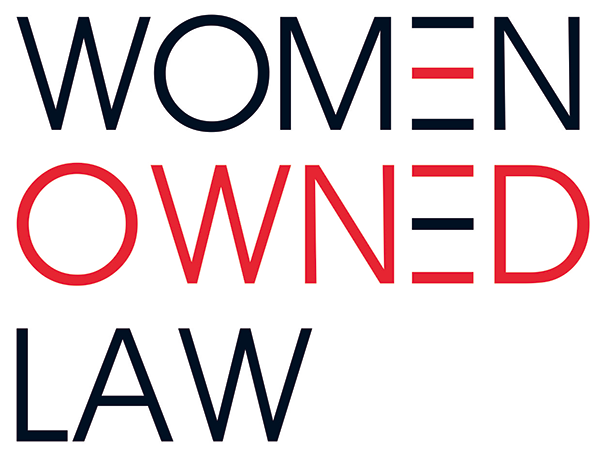Data Savviness in the Law: The Intersection of Attorney Competency and Technology
By Cheryl A. Brunetti | Executive Chairwoman | RVM Enterprises, Inc.
Competency is a longstanding ethical obligation for attorneys, but what it means to be “competent” continues to evolve. Its evolution is due to the growing prevalence of technology that impacts the legal industry – from discovery to day-to-day case management. The result is that lawyers now know where to look to find the answers, either by improving their own understanding of the technology or by enlisting the proper resources.
Over the years, lawyers have seen a shift in the ways they file court documents, communicate with clients and opposing counsel, and maintain client files. With emails replacing phone calls, electronic filings replacing visits to clerks’ offices, and electronic documents replacing paper-filled file cabinets, lawyers have needed to adjust to rapidly changing technology. Constant and swift changes to how discovery fits into a case can be particularly challenging to manage.
With new advanced technology emerging all the time in eDiscovery, attorneys and their staff must be able to keep up with this moving target. Simply put, in the current setting, electronic discovery is “discovery” and is no longer just for large, complicated matters. Data is being created at a rapid rate, by all types of users, so eDiscovery is applicable to a widening range of matters.
So how do competency and technology intersect? The driving force for the overlap between technology and competence comes from Comment 8 to Model Rule of Professional Conduct 1.1, which notes that competency requires lawyers to “keep abreast of changes in the law and its practice, including the benefits and risks associated with relevant technology.” In recent years, the number of states adopting this comment is rising, with roughly 70% of states on board at this point.
References to competency have not escaped the courts or state bar opinions either. For example, when deciding upon sanctions, before discussing Comment 8 to Rule 1.1, the Delaware Chancery Court noted: "Professed technological incompetence is not an excuse for discovery misconduct." James v. Natl. Fin. LLC, No. 8931-VCL 2014 WL 6845560 (Del. Ch. Dec. 5, 2014). Further, in situations where a case requires eDiscovery, a frequently cited California State Bar Opinion stated, “the duty of competence requires an attorney to assess his or her own e-discovery skills as part of the attorney’s duty to provide the client with competent representation. If an attorney lacks such skills and/or resources, the attorney must try to acquire sufficient learning and skill, or associate or consult with someone with expertise to assist.” (Formal Opinion No. 2015-193).
Despite the rising standard, lawyers should not fret when faced with a technological challenge. The avenues to learn about the intersection between law and technology are mounting. Not only are programs more widely available, but technology credits are becoming a mandatory part of CLEs in some states. Florida started the trend, with North Carolina adding the requirement more recently, and more states are likely to follow suit. North Carolina’s description of a technology program (defined within 27 N.C.A.C. Chapter 1D, Section .1501 (17)) indicates that the requirement covers a broad range of programs, spanning beyond electronic discovery. Of course, a few CLE credits are not going to meet all of a lawyer’s data needs. Even with such training options available, for lawyers who lack the time or inclination to take this education into their own hands, there are service providers who can assist with various discovery and data needs.
For example, a number of providers offer options for internal document management. Beyond that, vendors offer opportunities to unload some of the burden of discovery. Vendors have also strengthened their footing in the industry by offering services ranging from collection to processing, hosting, review, production, and more. A capable vendor enables a lawyer to gain expertise without shouldering full responsibility for discovery, but a lawyer must still demonstrate a basic understanding of the discovery process and the role of the vendor.
Lawyers and law firms should consider timing, scope and continued obligations before engaging an outside vendor. For example, if a lawyer already agreed to specific discovery or ESI protocols, it may be too late to seek assistance to ensure that the scope and format of discovery are appropriate for the matter. While a vendor may still be able to help, the time to avoid potentially onerous and costly discovery practices could be in the rearview mirror.
In addition, when outsourcing assistance from a vendor, the lawyer is not free of responsibility. In fact, the lawyer remains counsel of record in these situations, not the vendor. Model Rule of Professional Conduct 5.3 dictates the responsibility of a lawyer to oversee the legal services being performed. Comment 3 to the Rule reminds lawyers that they “must make reasonable efforts to ensure that the services are provided in a manner that is compatible with the lawyer’s professional obligations.”
The lawyer should understand the discovery requirements in the specific matter, as well as the steps taken by the vendor to support their services, including quality control measures or checks to ensure the deliverables are accurate and appropriate. In particular, the lawyer must recognize the importance of preserving data subject to potential litigation, and how to identify the correct custodians, sources, and date ranges to be collected. A good vendor will walk the lawyer through these steps, but it is up to legal counsel to be prepared to speak to it.
It seems relatively easy for a lawyer to feel overwhelmed with the shifts in technology and eDiscovery, but, despite the burden, a lawyer can utilize ways to get up to speed or enlist assistance. In doing so, as long as the lawyer retains a basic understanding and oversees services, technological competency is well within reach.
Cheryl A. Brunetti is the Executive Chairwoman at RVM Enterprises, Inc., an end-to-end global provider of eDiscovery and consulting services for global corporations and Am Law 100 firms. Ms. Brunetti, a licensed C.P.A., is an accomplished business executive and entrepreneur with leadership and management experience in all aspects of business operations.

